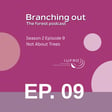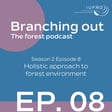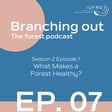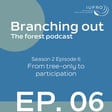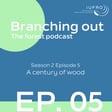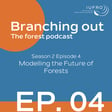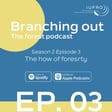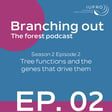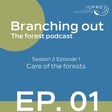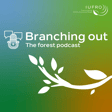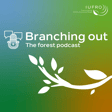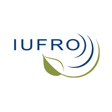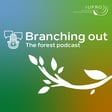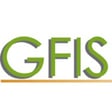Become a Creator today!Start creating today - Share your story with the world!
Start for free
00:00:00
00:00:01

IUFRO-WFSE (interview with Gerardo Mery) - by the International Union of Forest Research Organizations (IUFRO)
In this IUFRO podcast episode, Tarun Bathija interviews Gerardo Mery who is the project coordinator of one of IUFRO's special programs, IUFRO-WFSE.
The Special Project on World Forests, Society and Environment (IUFRO-WFSE) is a global, open, non-profit, collaborative network of scientist and experts steered by ten international research organizations. On the basis of existing scientific knowledge, IUFRO-WFSE looks for innovative solutions to support and advance the formulation and implementation of forest-related policies that promote sustainable development and human well-being.
The IUFRO-WFSE network shares existing scientific knowledge and participates actively in forest-related policy processes.
Transcript
Introduction to YouFor Podcast
00:00:12
Speaker
Hello and welcome to another YouFor podcast. This is Tarun Batija from the YouFor headquarters in Vienna, Austria. In today's podcast, we'll be focusing on the special project on the world forest, society and environment. And I'll be interviewing Gerardo Meri, who is the project coordinator.
Interview: Purpose of WFSC
00:00:30
Speaker
Hello. Hello. How are you? I'm fine. Very pleased to have you here. I'd like to start by asking you, what is WFSC? And for what reason was this project started? And what are your main objectives?
00:00:44
Speaker
Okay, let me go back and give you first the reason why we were created or our project was established.
Creation of WFSC
00:00:54
Speaker
It was in the mid 90s when the problem of globalization came up very, very strongly in our world.
00:01:05
Speaker
discussions and we start from the basis that the global problems that were existing in our globalizing world should have also global answers from the research side and so we try to provide this global answer with our research.
00:01:27
Speaker
looking at the problems of forestry from a very wide perspective that can embrace many different disciplines in looking for the answer that we were posed at that time.
Founding Organizations of WFSC
00:01:41
Speaker
And in concrete terms WFSE or World Forest Society and Environment was initiated
00:01:51
Speaker
by the joint action of the Finnish Forest Research Institute, the European Forest Institute and United Nations University, mainly with the secretariat in Tokyo, Japan, in the year 1996. We agreed to work together for getting answers to these global problems. And in the following year, several international research organizations
00:02:20
Speaker
join our network. We did successful networking and active publishing during these years. We published several books.
00:02:33
Speaker
and therefore a new institution requests to be considered in our network and for that reason we understood at that time that our framework was a little bit narrow and we should look for a wider one and for that reason we are under JUFRO, umbrella. JUFRO is a, as you know, we say world organization.
00:03:01
Speaker
global organization of research in the field of forestry. Well, this is our brief story of a little bit more than or close to 15 years story.
Innovative Solutions for Sustainable Forestry
00:03:15
Speaker
And what about our general goal? Well, let me say that on the basis of existing scientific knowledge, we look for innovative solutions to support and advance the formulation and implementation of forest-related policies that promote sustainable development and human well-being.
00:03:37
Speaker
In more specific terms, I want to mention that we first identify topics of global and regional concern on the interrelation between forest society and the environment.
00:03:51
Speaker
We address this topic in multidisciplinary collaborative groups. We produce objective evaluations and critical analysis on the crucial forest-related issues. We focus on solving the identified current and foreseen problems, and we publish and disseminate scientific publications, policy briefs, and capacity-building material on these issues.
WFSC's Collaborative Efforts
00:04:19
Speaker
With whom are you mainly collaborating and creating partnerships with? Let me say that WFSC is a global network, focusing on the forest, society and environment interface as I have mentioned already. We are an open, non-profit, collaborative network of scientists and experts steered by 10 international research organizations.
00:04:47
Speaker
Our work is founded on objectivity and scientific independence. Through WFAC activities, we promote regional and global cooperation in high quality research and support policy development. We promote collaborative work between our members.
00:05:07
Speaker
We tried to create group of researchers and specialists which deals with important issues as a team. They discuss interchange different point of view and finally conclude in some common or different views on a given topic. We tried that this group will be open one where people coming from different countries can meet with different backgrounds
00:05:36
Speaker
with different theoretical backgrounds. They can have different disciplines as their main disciplines. And this provides the group with interdisciplinary views on the same topic. And this gives them an ample perspective for analyzing the different problems that they are touching.
00:05:57
Speaker
We also try to combine mature researchers with younger ones and so this younger can learn by doing in the group in the discussion and in providing some specific work for the group. And in this way we transfer experience from one people to other.
Major Publications and Future Works
00:06:20
Speaker
Can you please explain to us more about the books that WFSC has published over the last years?
00:06:27
Speaker
In all this year we have published several, several books. I have in my mind now five major book and several smaller book and booklets. Let me refer only to the last books that we have published. In the year 2005, we published a book entitled Forest in the Global Balance, Changing Paradigm. This book was launched in the last Ufro World Congress in Brisbane, Australia.
00:06:57
Speaker
And now we are preparing a new book for the forthcoming Ufro World Congress in Seoul, Korea in August 2010. The title of this new book is The Future of Forests Responding to Global Change. In the book that we published in the year 2005, we analyzed the paradigms in forestry. What are the main principles?
00:07:24
Speaker
that have regulated forest research and forest activities in the world until this moment. And we conclude, well, several general and specific conclusions, but we conclude mainly that the vision of forestry as a source of raw material for producing goods and services for societal needs has changed. Now we look at forest
00:07:54
Speaker
as a much more complex system or ecosystem of forest and live organism that can produce benefit and should produce benefit for society for solving all the problems that society needs and that also provide benefits
00:08:20
Speaker
that millions of people require from our environment.
Addressing Global Challenges with WFSC
00:08:26
Speaker
Now, in the current book that we are still completing, we are trying to approach to the new responses that we need to confront urgent and new demands. We are looking at the world and we notice that it's changing very rapidly and dramatically. Now we are confronting
00:08:50
Speaker
So big problems as climate change, deforestation and forest degradation to satisfy the conservation of biodiversity in the world. We have also to keep environmental services working. We have to produce
00:09:08
Speaker
products and services for answering the economic and social demands of people. We have to take care of also the production of clean water. We have to have healthy and vital forests and also we have to govern these forests. We have to regulate how we operate with them. We have to
00:09:28
Speaker
take care of the governance issue of these forest resources. So these answers we try to present in this book looking up to the future, what we have to do for conserving and improving our forest resources. In the future, what would this special project like to achieve?
WFSC's Network for Global Issues
00:09:52
Speaker
In the future, our dream is that our group, our wide network, I haven't mentioned that our network is so large that we have about 200 scientists or more than 200 scientists working in the forthcoming book. So it's a real large network. And our dream is that in the future, we will be capable
00:10:19
Speaker
to give prompt answer or prompt solution to emergent new issues that are suddenly appearing in the in the words of our contemporary society and many times the research side last several years before arriving with a rational proposal for a give solution to some of these urgent issues.
00:10:47
Speaker
And in what manner do you think that WFSC contributes to our world?
Connecting Policymakers with Science
00:10:52
Speaker
As I have mentioned before, our work is focusing on the forest society and environmental interface. So we try to give or bring our voice to the ears of policymakers on these matters.
00:11:08
Speaker
We try to be a bridge between policymakers and scientists. We try to develop this interface that always should be between policy and science. And particularly in the field of forestry, we are very worried about that because until now we think that this bridge has not always functioned. What would be the main message you would like our listeners to remember?
00:11:37
Speaker
One thing is that we try to make collaborative, ample, interdisciplinary work that look at this problem and proposal solution from many angles, from many different points of view. This was a podcast brought to you by UFRO, the International Union of Forest Research Organizations. Thank you for listening and stay tuned.
